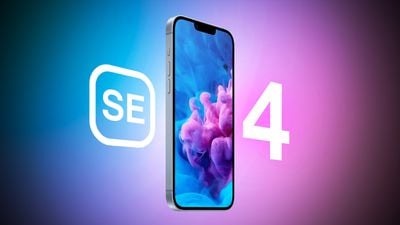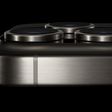Significant changes are expected to arrive with Apple's fourth-generation iPhone SE, in terms of both design and hardware, MacRumors has learned.

The iPhone SE 4, known internally under the codename Ghost, is expected to receive a new design derived almost entirely from the base model iPhone 14. According to our sources, the iPhone SE 4 will use a modified version of the iPhone 14 chassis and will even maintain iPhone 14 test parameters for internal testing.
As far as the chassis is concerned, two major changes are expected – an Action button and a USB-C port. The Action button, recently debuted on the iPhone 15 Pro, is a multi-purpose button which replaces the mute switch on newer iPhone models. It can be configured to perform a variety of actions, depending on the user's preference.
The iPhone SE 4 is also set to receive a USB-C port in order to comply with upcoming European Union regulations. Our sources have seen extensive references to the E85 connector, which is what Apple calls USB-C internally. Apart from these two major differences, no significant changes are planned for the chassis compared to the iPhone 14, and it will likely not feature the curved edges of the iPhone 15 lineup.
As for the back of the device, the next iPhone SE will feature a single camera with the flash aligned in an arrangement similar to the third-generation iPhone SE. The exact design of the camera bump, however, remains unclear at the time of writing. Apple has developed at least five different designs for the camera bump, with minor differences among them. They fall into two major categories:
- Camera and flash encompassed in a single, oblong-shaped camera bump
- Only the camera ring raised from the main backplate surface
Preliminary information suggests that the iPhone SE 4 may feature a 48-megapixel rear camera, providing for a significant upgrade from the current model.
The iPhone SE 4 will also likely receive a new OLED panel, derived from the iPhone 14. The device will not feature a Touch ID home button, but will instead have Face ID as the means of biometric identification. Multiple references to "Pearl," Apple's internal codename for Face ID and associated hardware, have been spotted in relation to the fourth-generation iPhone SE.
Apple is also working on an in-house 5G modem, codenamed “Sinope”, and is using the iPhone SE 4 to test the new hardware. Current information suggests that the new modem is being tested on the iPhone SE 4 and a derivative of the iPhone 15 Pro Max, known as "D84S." Originally, the new 5G modem was meant to make its debut with the iPhone 16 lineup, being available across the entire range. According to information from our sources, this may no longer be the case. Additionally, Qualcomm recently issued a press release stating that the company would be providing smartphone modems for Apple until 2026.
Previous claims have suggested that Apple was developing the iPhone SE 4 exclusively for modem testing, and that it was not intended for mass production or release to the general public. This theory seems unlikely, as it does not explain the amount of effort put into the overall design of the device including multiple camera bump iterations, as well as part changes.
If the iPhone SE 4 had been intended exclusively for modem testing, this likely would not necessitate a camera redesign or the inclusion of an Action button. From a pragmatic point of view, it would make more sense to reuse existing parts with only a minimum amount of modification, as was done with the D84S.
It's worth noting that the information presented here is preliminary, pre-preproduction information. The fourth-generation iPhone SE is still early in the development process, and changes are always possible. As a result, the information may not fully align with the specifications of final mass-production units, assuming the project makes it to this stage.
For additional details on what to expect, check out our dedicated guide for the iPhone SE 4.

















